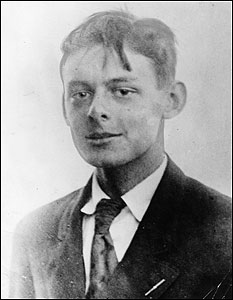Thomas Stearns Eliot was born in 1888 in St. Louis , Missouri Harvard University for his graduate and undergraduate degrees, he moved to England
T.S. Eliot in 1906, at age 19

"The Love Song of J. Alfred Prufrock" Illustration



6 comments:
I really love the "sugar art"!
In "The Love Song of J. Alfred Prufrock," you can definitely see Eliot's confusion. His lack of faith and conflicting spiritual ideals is evident in the poem. As the "sugar art" clearly shows, he debates the meaning/purpose of life.
Samantha, I think your picture is extremely interesting. I look forward to re-reading the "Love Song of J.Alfred Prufrock" because I feel like it will provide further insight into Eliot's eventful life.
I really like that T.S. Elliot is celebrated and studied by both British and American students. Living in both the United States and England probably brought a new dynamic to his writing that most authors don't have.
T.S. Eliot began writing poetry at the age of 14, but destroyed much of his very early work after deciding the poems were too depressing. The turning point for Eliot seemed to be when he discovered Arthur Symons's "The Symbolist Movement in Literature." I'm sure this work influenced his career as a modernist poet, since much of modernism rejects realism's plain meanings and matter-of-fact descriptions. Also, one of T.S. Eliot's greatest accomplishments was receiving the Nobel Prize in Literature in 1948.
I find it very interesting that modernist writers like T.S Eliot Dostoyevsky were such strong Christians. T.S Elliots "The Love Song of J. Alfred Prufrock" and Dostoyevsky's "Notes from the Underground" both question the purpose of life and point out its futility. Both protanists are also very negative and very non-christian. I've heard that the editors removed Dostoyevky's last chapter of "Notes from the Underground" that explained finding the purposeness of life in God and I really desire to read it.
Post a Comment